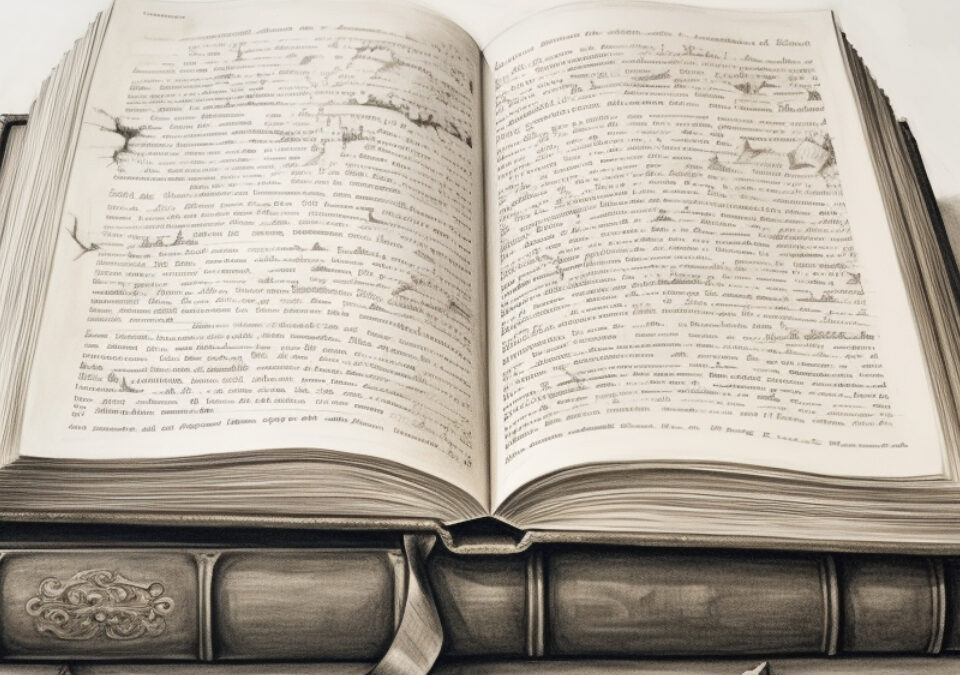
6. Promises of Salvation
September 28, 2024
5. Angel with Drawn Sword
September 29, 2024Oliver Cowdery is excommunicated for “falsely insinuating that he [Joseph Smith] was guilty of adultery.”
Table of contents
- Oliver Cowdery is excommunicated for “falsely insinuating that he [Joseph Smith] was guilty of adultery.”
- A1) Oliver Cowdery was excommunicated for “falsely insinuating that he was guilty of adultery.”
- A2) Oliver was referring to Joseph Smith’s relationship with Fanny Alger, however Church leaders never accused Joseph of being involved with Alger during Oliver’s excommunication trial. Fanny Alger was a teenage servant in Joseph Smith’s home.
- A3) Oliver Cowdery believed Smith’s relationship with Alger was an affair. Other scholars have accepted this interpretation.
- Issues these Facts Raise
- Questions these Facts Raise
A1) Oliver Cowdery was excommunicated for “falsely insinuating that he was guilty of adultery.”
Supporting Sources and Quotes
Oliver Cowdery continued to hold fast that Joseph’s relationship with Fanny was a “dirty, nasty, filthy affair.” Joseph meanwhile was denying rumors of polygamy. This led to Joseph Smith holding a church disciplinary trial. The purpose for the trail was stated:
“For seeking to destroy the character of President Joseph Smith, Jun., by falsely insinuating that he was guilty of adultery.” - History of the Church, vol 3, p. 16-7, listing reasons why Oliver Cowdery on trial.
From the Excommunication Trial Minutes:
George W. Harris testifies that one evening last fall O. Cowdery was at his house together with Joseph Smith jr., and Thomas B. Marsh, when a conversation took place between Joseph Smith jr & O. Cowdery, when he seemed to insinuate that Joseph Smith jr was guilty of adultery, but when the question was put, if he (Joseph) had ever acknowledged to him that he was guilty of such a thing; when he answered No. Also he believes him to be instrumental in causing so many lawsuits as had taken place of late.
David W. Patten testifies, that he went to Oliver Cowdery to enquire of him if a certain story was true respecting J. Smith’s committing adultery with a certain girl, when he turned on his heel and insinuated as though he was guilty; he then went on and gave a history of some circumstances respecting the adultery scrape stating that no doubt it was true. Also said that Joseph told him, he had confessed to Emma, Also that he has used his influence to urge on lawsuits.
Thomas B. Marsh testifies that while in Kirtland last summer, David W. Patten asked Oliver Cowdery if he Joseph Smith jr. had confessed to his wife that he was guilty of adultery with a certain girl, when Oliver Cowdery cocked up his eye very knowingly and hesitated to answer the question, saying he did not know as he was bound to answer the question yet conveyed the idea that it was true. Last fall after Oliver came to this place he heard a conversation take place between Joseph Smith and Oliver Cowdery when J. Smith asked him if he had ever confessed to him that he was guilty of adultery, when after a considerable winking &c. he said No. Joseph then asked him if he ever told him that he confessed to any body, when he answered No.
Joseph Smith jr testifies that Oliver Cowdery had been his bosom friend, therefore he entrusted him with many things. He then gave a history respecting the girl business.”
-Ebenezer Robinson clerk, High Council Minutes, April 12, 1838, in Donald Q. Cannon and Lyndon W. Cook, eds., Far West Record: Minutes of the Church of Jesus Christ of Latter-day Saints, 1830–1844 (Salt Lake City: Deseret Book, 1983), 167–68:
(Found Online Here: http://josephsmithspolygamy.org/far-west-high-council-meeting-record-april-12-1838/)
We see Cowdery’s perspective in a January 21, 1838, letter to his brother, Warren, in which he vehemently denied that he had ever lied or admitted lying about Fanny Alger. He describes a meeting with Smith before witnesses (possibly the meeting at Far West), in which “in every instance I did not fail to affirm that what I had said was strictly true. A dirty, nasty, filthy affair of his and Fanny Alger’s was talked over in which I strictly declared that I never deviated from the truth.” The meeting ended with Smith wanting “to drop every past thing, in which [there] had been a difficulty or difference – he called witnesses to the fact, gave me his hand in their presence, and I might have supposed of an honest man, calculated to say nothing of former matters.” The tone of Cowdery’s letter shows that the reconciliation did not last. He was tried for his membership on April 12, 1838, at Far West, and six of nine charges brought against him were sustained; he was excommunicated. One of the charges was: “For seeking to destroy the character of President Joseph Smith, Jun., by falsely insinuating that he was guilty of adultry.” Certainly other factors were important in the excommunication, but the issue of adultery was crucial. Cowdery criticized the church for “endeavoring to make it a rule of faith for said church to uphold a certain man or men right or wrong.” Cowdery had been the scribe of the Book of Mormon, one of the three witnesses to its divinity, and a recipient with Smith of the Aaronic and Melchizedek priesthoods in reported angelic manifestations, so his excommunication was indeed a severe loss to the church.
Todd M. Compton, In Sacred Loneliness: The Plural Wives of Joseph Smith. Kindle Edition. loc. 1301-13.
A2) Oliver was referring to Joseph Smith’s relationship with Fanny Alger, however Church leaders never accused Joseph of being involved with Alger during Oliver’s excommunication trial. Fanny Alger was a teenage servant in Joseph Smith’s home.
Supporting Sources and Quotes
The sources written before 1839 indicate that most Church leaders knew nothing of a possible marriage. What they did know is suggested by the minutes of Oliver Cowdery’s excommunication trial before the Far West High Council in April 1838, one of the few contemporaneous sources. Cowdery, long Joseph’s friend and associate in visions, was a casualty of the bad times. In 1838, he was charged with “seeking to destroy the character of President Joseph Smith jr by falsly insinuating that he was guilty of adultry &c.” Fanny Alger’s name was never mentioned, but doubtless she was the woman in question.
-Rough Stone Rolling by Richard Bushman
The Far West court did not accuse Joseph of being involved with Alger. Some councilors had heard the rumors, but concluded they were untrue. They were concerned only with Cowdery’s insinuations. He was on trial for false accusations, not Joseph for adultery. David Patten, an apostle, “went to Oliver Cowdery to enquire of him if a certain story was true respecting J. Smith’s committing adultery with a certain girl, when he turned on his heel and insinuated as though he was guilty.” Thomas Marsh, another apostle, reported a similar experience. “Oliver Cowdery cocked up his eye very knowingly and hesitated to answer the question, saying he did not know as he was bound to answer the question yet conveyed the idea that it was true.” George Harris testified that in conversation between Cowdery and Joseph the previous November, Cowdery “seemed to insinuate that Joseph Smith jr was guilty of adultery.” Eventually the court concluded that Cowdery had made false accusations, and cut him off from the Church.
-Rough Stone Rolling by Richard Bushman
A3) Oliver Cowdery believed Smith’s relationship with Alger was an affair. Other scholars have accepted this interpretation.
Supporting Sources and Quotes
In the summer of 1837 Apostle David Patten asked Cowdery: “if he Joseph Smith jr had confessed to his wife that he was guilty of adultery with a certain girl, when Cowdery cocked up his eye very knowingly, and hesitated to answer the question, saying he did not know as he was bound to answer the question yet conveyed the idea that it was true.” Patten testified that he then asked Cowdery directly if: “a certain story was true respecting J. Smith’s committing adultery with a certain girl, when he turned on his heel and insinuated as though he was guilty; he then went on and gave a history of some circumstances respecting the adultery scrape stating that no doubt it was true. Also said that Joseph told him, he had confessed to Emma.”
Todd M. Compton, In Sacred Loneliness: The Plural Wives of Joseph Smith. Kindle Edition. loc. 1283-88.
Fawn Brodie’s 1946 biography of Smith presents his and Alger’s relationship as an affair, not a marriage, and other scholars have accepted this interpretation. This position follows the earliest contemporary reference to the Smith-Alger relationship, an 1838 letter written by Oliver Cowdery at a time when he was estranged from Smith. He wrote, with vehement hyperbole, “A dirty, nasty, filthy affair of his and Fanny Alger’s was talked over in which I strictly declared that I had never deviated from the truth.”
Todd M. Compton, In Sacred Loneliness: The Plural Wives of Joseph Smith. Kindle Edition. loc. 1068-71.
Issues these Facts Raise
Oliver Cowdery appears to be excommunicated for telling the truth. Notes are somewhat sparse on the trial, so I’m not sure what Joseph said. Still, it leaves me unsettled, considering we are talking about Oliver Cowdery’s salvation.
Questions these Facts Raise
Why is God fine with Joseph acting behind Emma’s back? Not once. Not twice. Not three times. Not four times. Many, many times. Joseph is often getting together with other women behind Emma’s back. How is this not committing adultery? Or, in other words, do I have to believe in a God that is sanctioning and encouraging secret adultery? Or do I have to at a minimum believe that God was also against adultery, but it really had no bearing on Joseph Smith, the restoration of the church, the truthfulness of what Joseph did or even the excommunication of Oliver Cowdery for telling the truth? Does God care so little for the women or the actions of the members, including the prophet?
Every other church that enacts these kinds of actions is easily dismissed as uninspired and nothing but after sex and power. That is true of FLDS, etc. What makes this different for Joseph Smith and God?



